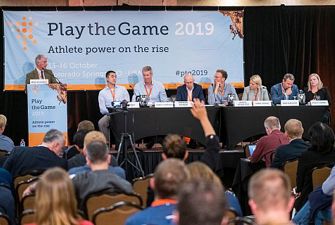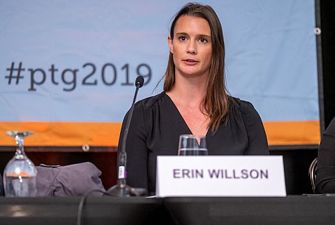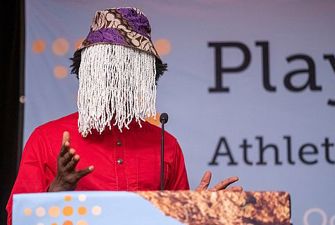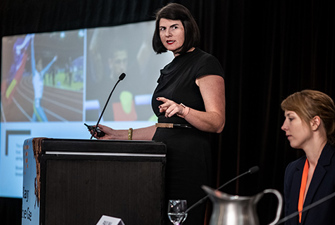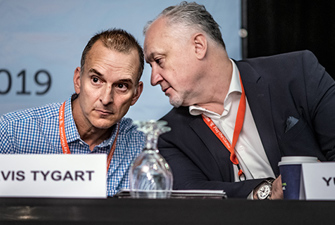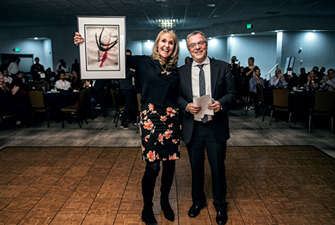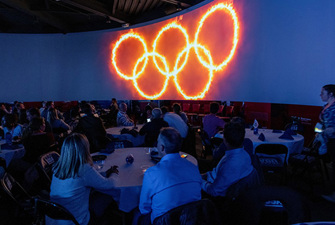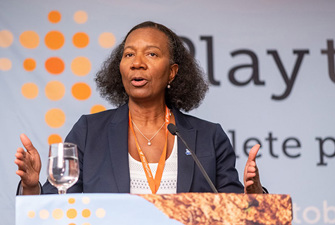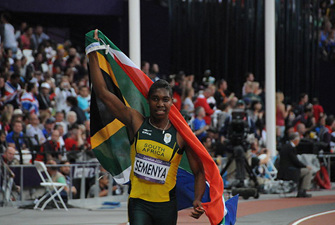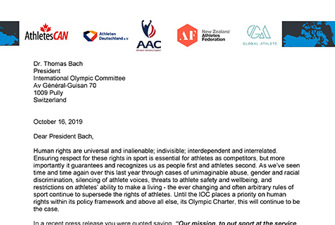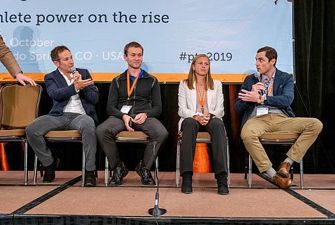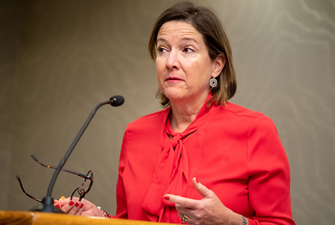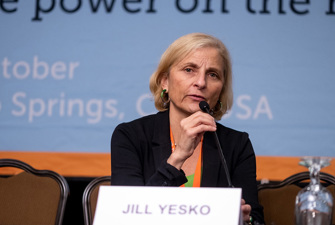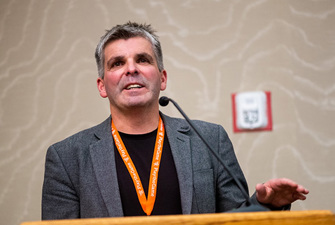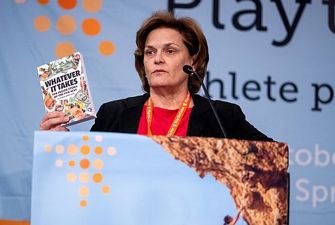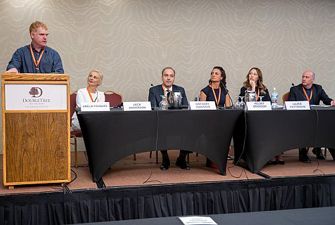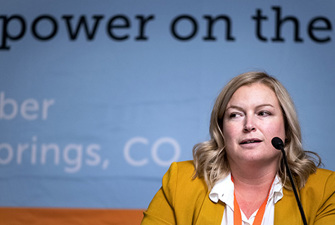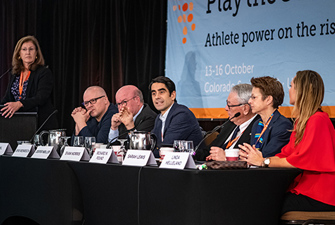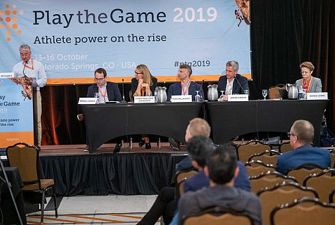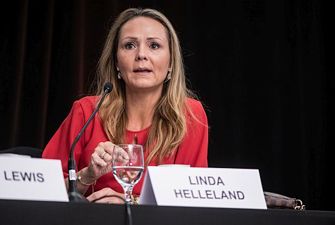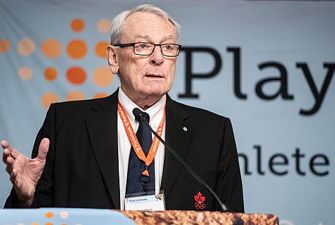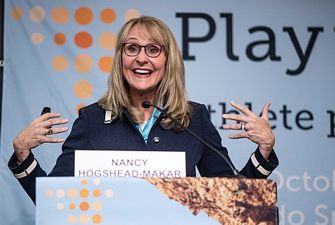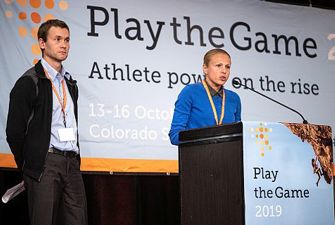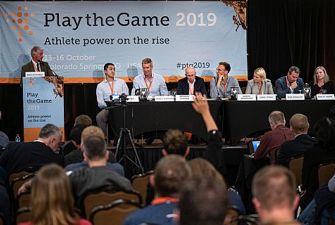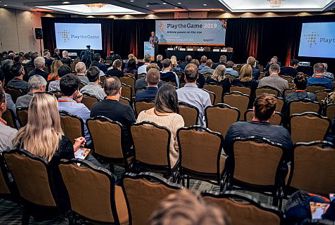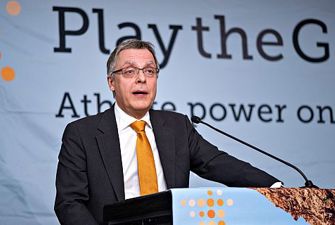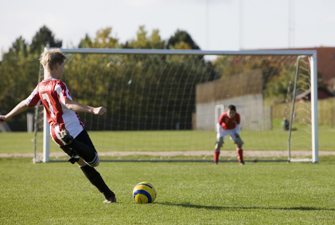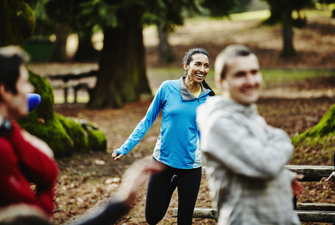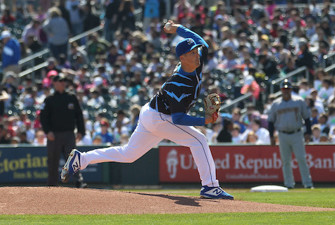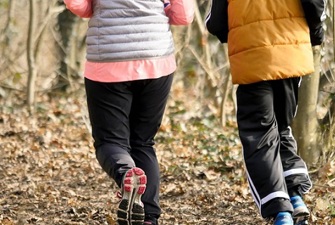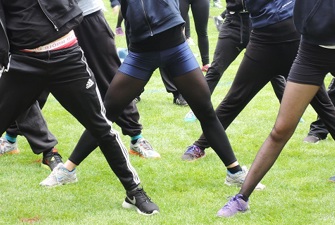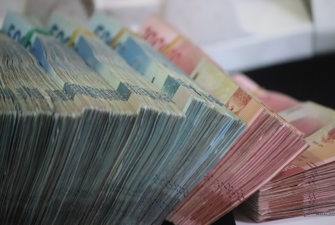Tackling threats to grassroots sport
The contrasting challenges of growing participation in grassroots sport in the USA compared with other countries were a main topic on day three at Play the Game 2019.
“We need to bring it down to a community level,” said Tom Farrey, executive director of the Sports & Society Program at the Aspen Institute in a presentation on the Project Play initiative in a plenary session titled ‘The global challenge of growing grassroots sports’.
The core values of health and inclusion are essential in Project Play, which aggregates best practice and has helped secure grants of between $55m and $60m for grassroots sport, added Farrey, who urged for ways to stop children quitting sport early.
In the USA, 26% of children quit sport before they are 12 years old due to poor coaching, said the U.S. Olympic and Paralympic Committee (USOPC) director of coaching education, Chris Snyder, who detailed how the American Development Model aimed to keep kids in sport past this age.
“The current U.S. system is professionalising athletes too young. Specialisation is being taken too extremes,” said Snyder who warned of the “adultification” of children’s sport.
Instead, he argued, children should play a range of sports with an emphasis on participation and this is what the American Development Model is designed to achieve. “Get good coaches and let kids play as many sports as possible then let them specialise when they are ready,” Snyder urged.
Since the model was conceived, 50 national governing bodies in the USA have embraced the concept, but other issues to participation in the country remain, particularly for girls.
Elizabeth Daniels, associate professor at the University of Colorado Springs, argued that the media may be discouraging girls from participating in sport.
“Youth today are heavily embedded in the media; it’s a major socialiser,” said Daniels, who added: “As a society, we just don’t care about coverage of women’s sport.”
Women’s sport is rarely shown and typified, said Professor Daniels, by differing production values. While coverage of women’s sport was likely to show a goal being celebrated, male coverage would show how that goal was scored. Objectification also remained a problem.
Niche sports
Developing niche sports at grassroots level in the USA was also a challenge, said John Ryan, a media specialist at Team Handball News, who started by joking that his sport was “like water polo without the water.”
Rather than the typical pyramid approach which began with grassroots at the bottom leading up to elite performance on the top, a different approach was needed.
He said: “Historically, there has been pressure over the last 20 years from the USOPC to support national teams because if you don’t have success then there’s no money. The USOPC needs a change in philosophy and grants tied to a development model instead of national team progress. There may finally be some progress now due to the American Development Model.”
Growing niche sports at a grassroots level was not insurmountable, said Ryan, who highlighted the advent of quidditch. He added: “If a sport can be built out of a fantasy book that did not exist 20 years ago, then it can obviously be done.”
The development of grassroots sports in the USA were then contrasted with three other countries. A sobering picture emerged just over the border in Canada, where high performance sport dominates to an unhealthy extent, warned Professor Peter Donnelly from the University of Toronto.
Using data, Professor Donnelly showed how overall participation in sport in Canada fell regardless of the number of medals won by Canadian athletes or the money spent on elite sport.
“High performance sport occupies all the policy space and takes the air out of the room,” said Professor Donnelly. “Nobody talks about sustainability in participation. No-one is responsible for sustaining participation in grassroots sport. It’s a matter for civil society.”
Grassroots sport in Brazil and Denmark
Grassroots sport also faces challenges in Brazil, where a change in government threatens successful movements such as Segundo Tempo and the Sport and Leisure Program of the City. Translating from the Portuguese as Second Half, the programme was launched in 2003 and succeeded in democratising access to sport.
Under Brazilian statues, funding for sport should be split equally between elite, school and community sport but in practice this does not work, said Professor Fernando Mezzadri from the Federal University of Parana.
Since conservative populist Jair Bolsonaro came to power in January 2019 Brazil’s ministry of sport has been dissolved and replaced by a Special Secretariat of Sport and Professor Mezzadri warned: “They don’t have a specific policy for sport today.”
The session was rounded off by Danish National Olympic Committee member Tine Rindum Teilmann, who detailed how Denmark’s government wants 50% of Danes to be members of a sports club and 75% to be active by 2025.
“We focus less on competition and on different stages of people’s lives” said Teilmann, who recounted the success of the Royal Run – The world’s largest participation one-mile race attracted 82,000 runners in 2019 across five locations.
Started only a year earlier when Crown Prince Frederik celebrated his fiftieth birthday, 28% of participants had never been involved in an organised event before.
Simply getting people active through participation was the challenge for grassroots sports and finding ways to encourage that at all ages requires a concerted challenge with different obstacles in different countries.
